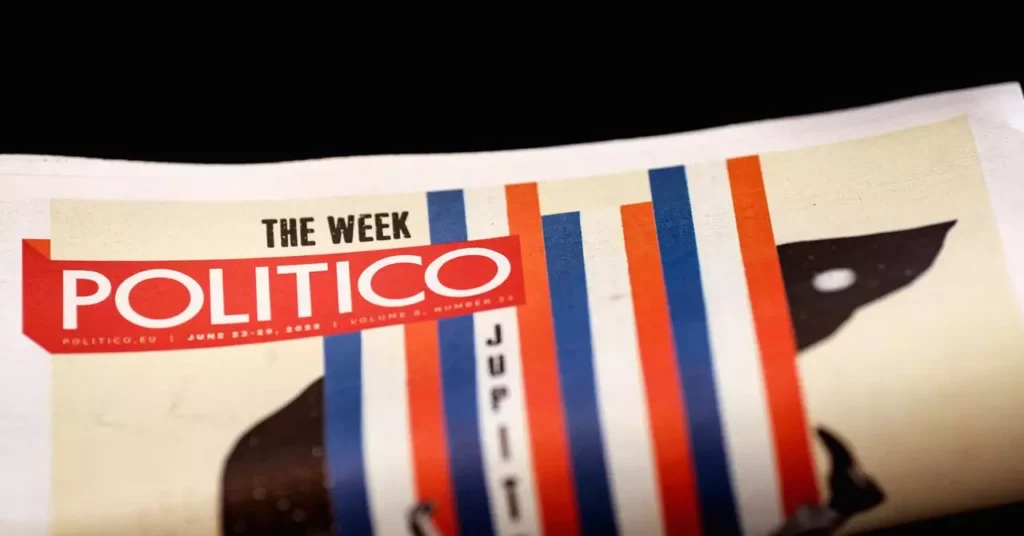The evolution of journalism has always undergone a series of transformations, but the current shift catalyzed by artificial intelligence (AI) is perhaps the most unsettling. Politico’s recent engagement with AI technology is emblematic of this turbulent transition. While the organization had taken strides to integrate AI into its operations under the guise of innovating journalism, the ramifications are creating an important but often overlooked debate about ethics, labor rights, and the integrity of news itself.
The problem arises when examining the balance of power in these transformations. Politico, once a preserver of journalistic integrity, is now at the forefront of an ethical minefield. The PEN Guild, representing the journalists at Politico, has issued some serious allegations against the management, claiming that they are flouting the very union contract established to protect journalists’ rights in the age of AI. If management is, indeed, ignoring agreed-upon frameworks, this could be the chilling onset of a slippery slope in which journalists lose control over their narratives and the processes that guide them.
Union Rights vs. Managerial Power
One pressing question is: how much power should management wield over the implementation of AI technologies? The situation reveals a stark divide between the needs of the workforce and the objectives of those in leadership positions. The PEN Guild’s contention revolves around not being given sufficient notice nor a platform for meaningful dialogue about AI technologies affecting their roles. With federal regulations lagging far behind, unions like PEN become a bastion for preserving the rights of journalists against corporate interests that often prioritize profit over ethical considerations.
The comments from Ariel Wittenberg, chair of the PEN union, underscore the precarious balance. He illustrates a pressing issue: the potential for unchecked AI implementation to erode the essence of journalistic work. If embedded in the workflows without stringent oversight, the tools risk leading not only to a reduction in quality but also to a degradation of integrity and trust, essential currencies in journalism.
The AI Paradox: Efficiency at What Cost?
The allure of increased efficiency through AI is palpable; however, beneath this veneer lies a serious set of ethical dilemmas. Politico has ambitiously adopted AI tools to create live news summaries and other automations. While such initiatives might streamline operations and elevate productivity, they simultaneously open Pandora’s box in terms of oversight and accuracy. Union members voice the crucial point that AI can jeopardize tasks that human journalists have mastered—like nuanced writing, fact-checking, and ethical communication.
Take, for instance, the incident where AI-generated content utilized inappropriate and derogatory language during crucial political debates. Such blatant inaccuracies not only tarnish the journalist’s credibility but also put the publication’s reputation on the line. These lapses serve as a grim reminder that while AI may enhance productivity, it lacks the human judgment, empathy, and ethical grounding that are vital to quality journalism.
The Need for Ethical Guidelines
As AI continues to infiltrate the industry, the urgent need for ethical frameworks becomes glaringly apparent. While representatives from Politico assert their allegiance to journalistic standards, the ambiguity surrounding the concept of “ethical use” grows complex in light of the ongoing changes in newsrooms. Arianna Skibell, the union’s vice chair for contract enforcement, highlights striking questions about human oversight on AI-generated content—an area where neglect could lead to significant misinformation and eroded standards.
It’s disheartening to see a potential collaboration morph into an adversarial relationship between management and the union. This could deter a constructive dialogue essential for tackling the challenges brought forth by AI. Instead of being a partnership focused on enriching the journalistic landscape, management’s top-down approach could be paving the way for ethical calamities.
A Defining Moment in Journalism’s Future
The current turmoil at Politico is not merely a localized issue; it represents a bellwether event with ramifications that could extend across the journalism landscape. As AI proliferates in this sector and beyond, it becomes imperative to maintain ethical considerations at the forefront.
In a world where personal opinions may be filtered through machines, ensuring that the core principles of journalism are upheld becomes a daunting but critical task. The future of news as we know it hinges on navigating this landscape with integrity—one that respects both technological innovation and the ethical obligations that journalists are bound to uphold. The stakes are high, and the outcome will likely set precedents that determine how news is produced and consumed in the future.









Leave a Reply